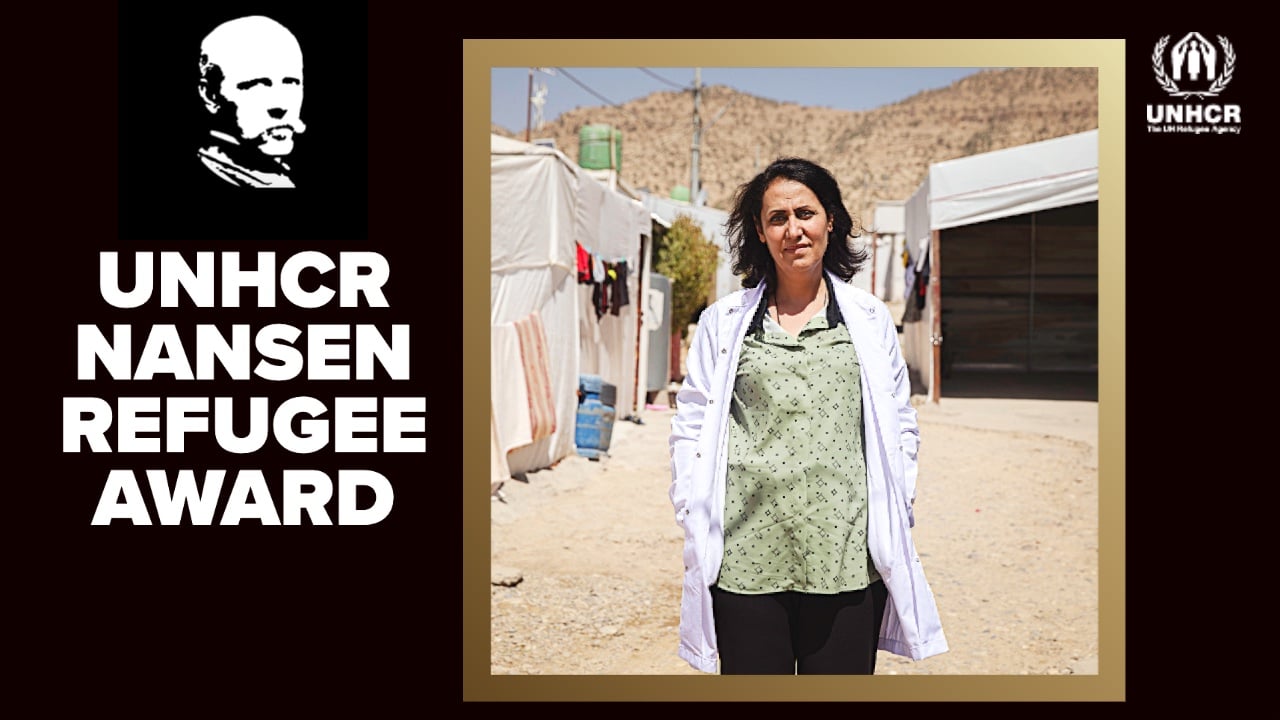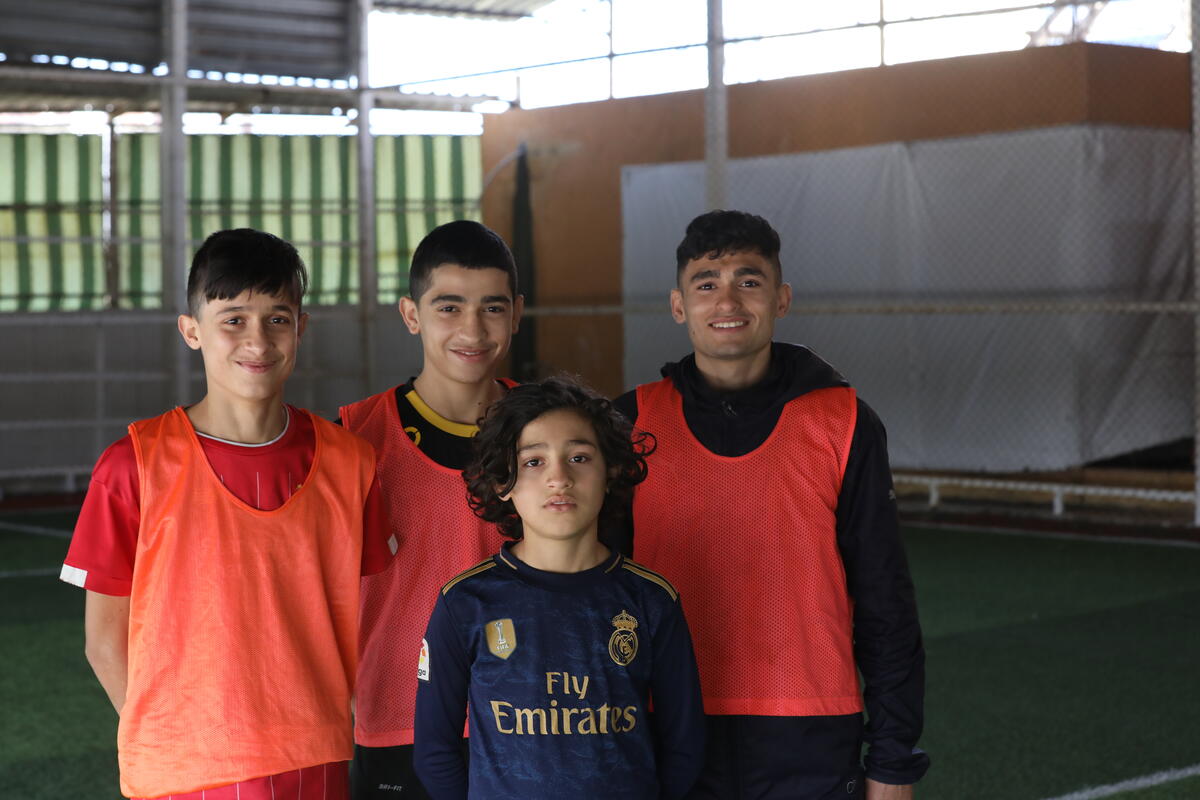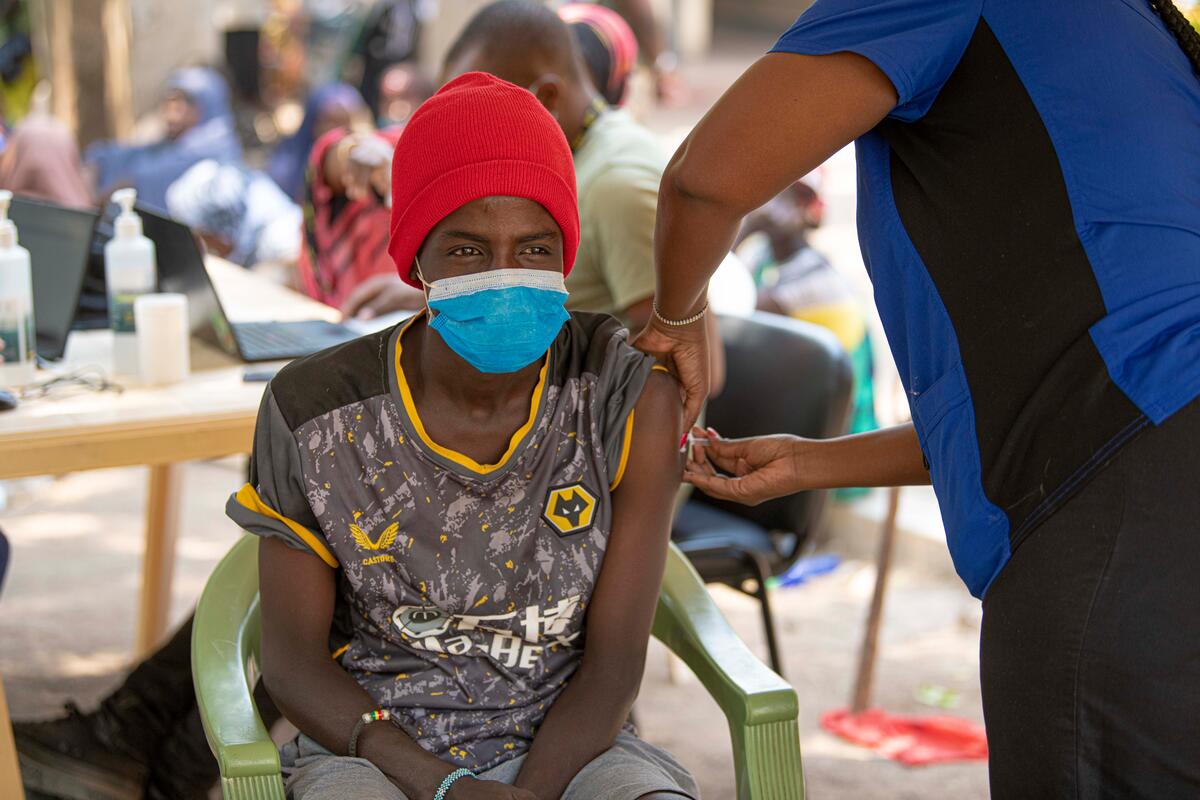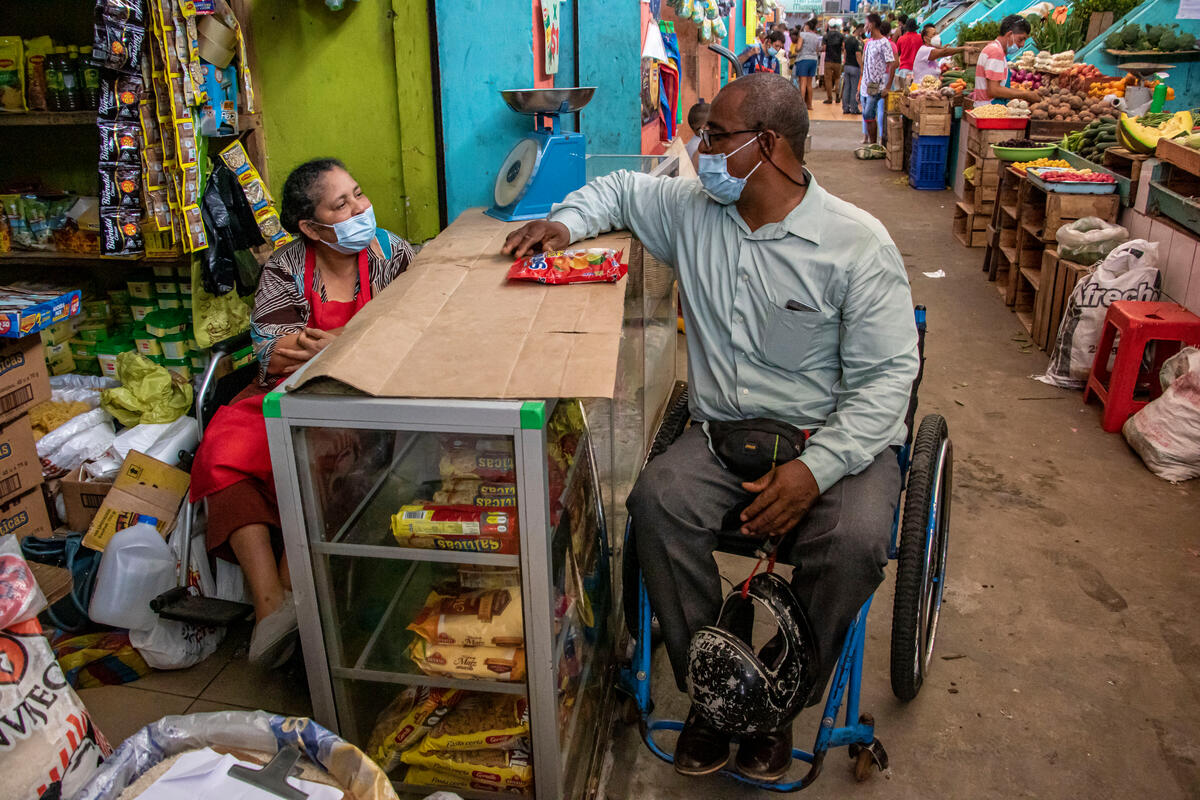UNHCR hands over first orthopaedic bed from Brad Pitt to Islamabad hospital
UNHCR hands over first orthopaedic bed from Brad Pitt to Islamabad hospital

ISLAMABAD, Pakistan, December 28 (UNHCR) - The UN refugee agency today handed over the first orthopaedic bed donated by actor Brad Pitt to help earthquake victims at an Islamabad hospital get back on their feet.
On Wednesday, Dr. Syed Fazle Hadi, Executive Director of the Pakistan Institute of Medical Sciences (PIMS) in Islamabad, received the first of 40 beds from UNHCR's Representative in Pakistan, Guenet Guebre-Christos. Worth over US$100,000 in total, the donation was made through UNHCR by Pitt when he visited Pakistan in late November with the agency's Goodwill Ambassador, Angelina Jolie.
"We are grateful to our donor, Mr. Brad Pitt, for supporting the relief effort for the earthquake-affected people of Pakistan," said Guebre-Christos. "This donation will bring comfort to the injured and facilitate the work of the dedicated hospital staff of PIMS."
The Islamabad hospital was overwhelmed after the October 8 earthquake that killed over 73,000 people and left an equal number injured. Casualties were flown in hourly from devastated areas in Pakistan-administered Kashmir and North-West Frontier Province. Twelve weeks later, the situation has stabilized at the hospital, but remaining patients - including 504 people with spinal injuries and 654 amputees - still need a high level of care.
"It's not easy to look after paraplegic and quadriplegic patients, who are prone to bed- and pressure-sores if they stay in the same position for too long," said Dr. Hadi. "These beds tilt from side to side and move up and down using electronic switches and hydraulics. They will make it easier for nurses to move the patients every two hours."
He expressed hope that the bed donation will inspire other philanthropists to help in other ways. "Some of the patients will walk again; most will not," said Dr. Hadi. "We now have one rehabilitation centre and are building a second one in Islamabad. Both will need gymnasiums for physiotherapy to help spinal injury patients strengthen their upper bodies. We also plan to have vocational training facilities to teach them how to make a living despite their disabilities."
UNHCR, too, has been trying to help earthquake victims back on their feet through a range of relief activities. The agency has so far distributed 19,439 tents, 431,184 blankets, 60,413 plastic sheets, 1,531 plastic rolls, 15,886 mattresses, 24,908 jerry cans, 20,008 kitchen sets, 1,359 sleeping bags and 31,628 bars of soap in the affected areas. It is now in the middle of a winterization campaign to provide everyone in relief camps with three blankets each and every tent with two plastic sheets and four mattresses.
As lead agency for camp management, UNHCR is currently providing material and technical support to the Pakistan authorities and NGOs in 37 planned camps and hundreds of spontaneous camps housing a total of 184,460 quake survivors. The agency offers advice on site planning and coordinates the delivery of services like water, sanitation, health care and education in camps. It also has 39 mobile teams to build latrines and communal kitchens where needed, and to sensitise camp communities on issues like winterization, fire safety and hygiene.
By Vivian Tan in Islamabad, Pakistan









